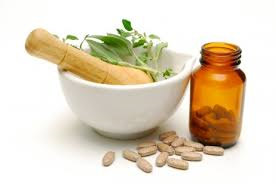Herbals and Prescriptions…
- Jeannie Collins Beaudin
- Jan 30, 2018
- 3 min read

How safe are they?
Many people think that herbal medications, being natural, are completely safe to take. But this isn’t always true. Herbal medications are really medicines, but just still in their natural plant form.
A new study, published in January 2018 in the British Journal of Clinical Pharmacology, analyzed severe reactions between herbs and drugs that were written up in journals as clinical studies or case reports. They looked at which drugs and diseases were most commonly involved, and how severe the reactions were.
They found interactions of varying types. Herbs could either increase the rate at which regular medications were removed from the body resulting in too little medication, or they could slow down the clearance, leaving too much of the medication left in the person’s system. This could result in patients responding poorly to their prescription medication, or developing toxic reactions to their regular treatments. Either scenario could result in hospitalization for the patient, especially with certain medications.
Most common problems...
The most common serious interactions occurred in people who had heart disease, cancer and kidney transplants. The most common prescription medications affected were: the blood thinner warfarin, “alkylating” chemotherapy drugs, and the anti-rejection drug cyclosporin. For each of these drugs, there is a very narrow “treatment window” – getting just a little too much or too little of the drug they need could cause serious problems with their condition.
Many herbal medicines “thin” the blood (i.e. make it less likely for a clot to form) so can add to the effect of warfarin as well as other anticoagulant or “blood thinner” drugs. Too much thinning of the blood can mean a little bump could cause extensive bleeding under the skin, seen as bruising. Worse, the bleeding can sometimes happen inside the body, usually in the digestive system, where it can’t easily be seen, leading to significant blood loss. One sign that shows a person is losing blood in the digestive system is a black, “tarry” stool - by the time blood reaches the end of the digestive system, it has turned from red to a sticky black, and looks much like tar.
Warfarin works by blocking the production of substances made from vitamin K that the body uses to make a blood clot. Many plants contain vitamin K, including herbal medicines. Increasing the amount of vitamin K in the diet, whether as a green leafy food or a herbal medicine, can help the body make more vitamin K clotting agents – more for the warfarin to block – requiring a higher dose of warfarin to prevent clots. In other words, more vitamin K can suddenly mean the blood will be able to clot more easily, increasing the risk of a blood clot, the underlying cause of heart attacks and most strokes.
Both chemotherapy drugs and cyclosporin need to be given in exact amounts to work properly. Too little and they don’t work as well…too much and they become toxic. So even a small change in how quickly they are cleared from the body can result in too much or too little in the system. Any person taking these medications should check a reputable source of information before taking a herbal medicine – ideally their doctor or pharmacist.
Ask your pharmacist...
Pharmacists receive education in both herbal and standard medications as part of their training. They have access to information on diseases, drugs, herbals, and interactions between these. If you take any prescription medications and are considering starting a herbal medicine, check with your pharmacist first. However, you should realize that a thorough information search requires time. If possible, leave the question with your pharmacist and drop back later to allow time for a proper search.
As well, herbals can interact with a medical condition you have. For example, blood sugar levels can be affected by some herbal medicines and this can be significant if you have diabetes. So, be sure to ask about possible interactions with both medications you take and any medical conditions you have.
Keep a list...
It is recommended to keep a list of all your medications for emergency use. But, as you can see, it is equally important to include all supplements you take on your list. Many pharmacies now provide a printed list that is automatically updated each time you fill a prescription. If you take a herbal medicine or nutritional supplement regularly, ask your pharmacist to add these to your profile so their information – and your list – will be complete. And, having complete information in their computer system, means the computer will bring possible interactions to the pharmacist’s attention every time they fill a prescription. Lastly, share your list with all health professionals who give you treatment… it just might prevent an avoidable interaction!
Reference:







Comments